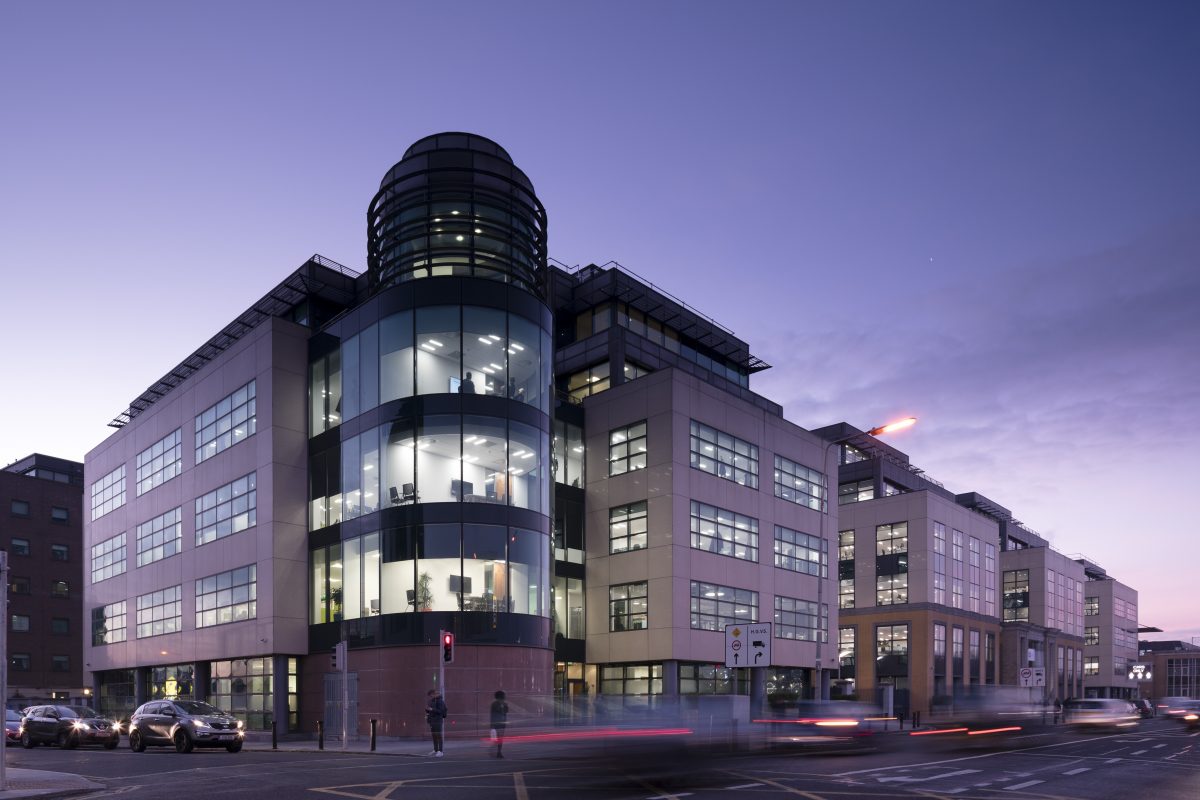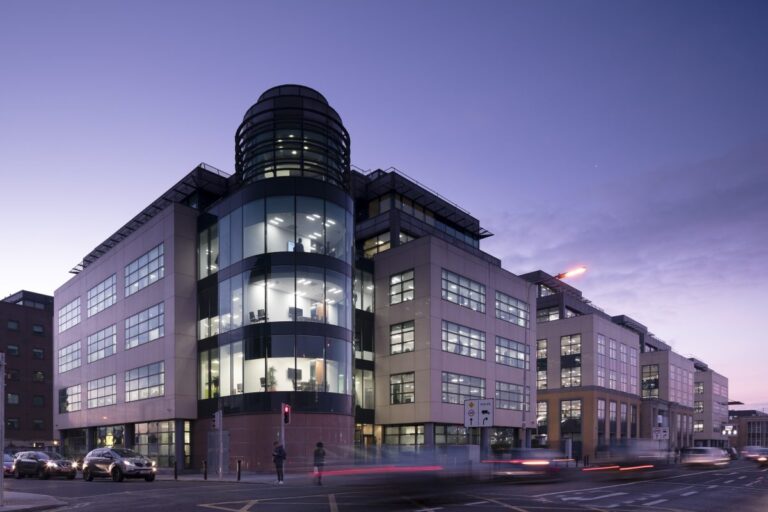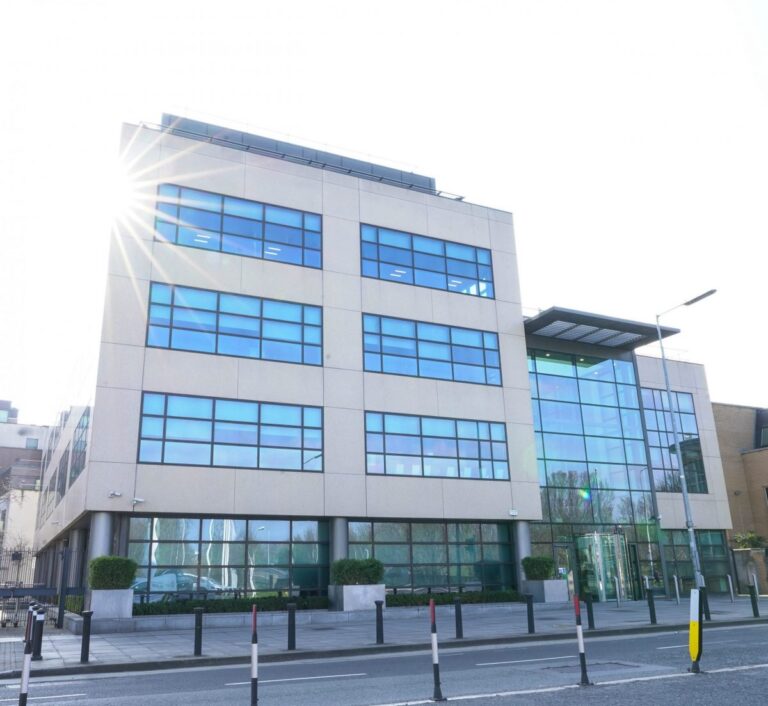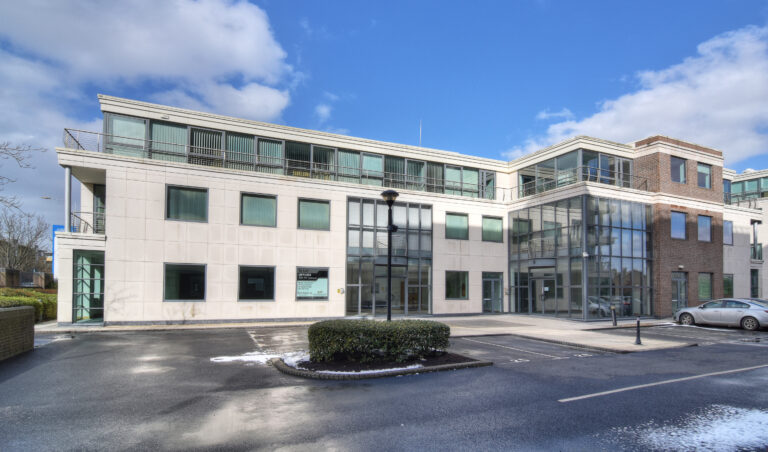Yew Grove REIT plc (LON:YEW) today reported its unaudited condensed consolidated results for the six months period ended 30 June 2021.
Strategic Highlights
| • | Continued strong rent collections for H1 2021 in excess of 99% |
| • | Quarterly dividend payments continued with total aggregate year-to-date dividend distribution per ordinary share of 2.55 cents declared for H1 2021 (H1 2020: 2.45 cents) |
| • | 13,350,000 million new ordinary shares issued in April 2021 at €0.95 per share |
| • | Two properties purchased within eight weeks of share issuance for €19.0 million |
| • | Admission to the regulated market of Euronext Dublin completed, satisfying the requirements of the REIT rules |
| • | 100 million share issuance programme refreshed at the EGM in May 2021 |
| • | Forward funding of the new extension for a life sciences tenant started on Athlone campus |
| • | Asset management has enhanced the Company’s property portfolio and revenue, including 20,000 square feet of office vacancy being let in early January 2021 |
| • | Strong pipeline of potential acquisitions continues |
Financial Highlights
| • | Net Asset Value (“NAV”) per ordinary share was 100.64 cents as at 30 June 2021 (31 December 2020: 100.03 cents) |
| • | Portfolio valuation on 30 June 2021 of €168.1 million (31 December 2020: €141.9 million) |
| • | Period property valuation gain of €2.1 million (1.3%) after absorbing the costs of 2021 property purchases |
| • | Properties owned throughout the period increased in value by 2.4% |
| • | Annualised rent roll of €12.8 million at Period end (31 December 2020: €10.9 million) |
| • | Period net revenues were €5.7 million, an increase of 8.1% on H1 2020 |
| • | Administration expenses were €2.5 million (H1 2020: €1.4 million), this included exceptional costs of €0.9 million for listing on the regulated market of Euronext Dublin |
| • | Diluted EPRA earnings per share (“EPS”) of 2.14 cents (H1 2020: 2.76 cents) |
| • | Credit facility drawings increased from €38.3 million to €49.5 million over the Period, leaving additional undrawn headroom of €3.8 million and cash of €11.3 million |
| • | Company loan to value ratio of 29.6%, an increase from 27.2% as at 31 December 2020 |
Portfolio Highlights
The Group’s portfolio as at 30 June 2021:
| • | Weighted average unexpired lease terms of 4.6 years to break and 7.8 years to expiry (31 December 2020: 4.1 years to break and 7.2 years to expiry) |
| • | Strong tenant covenants: (22% government and other state bodies, 71% FDI, 4% large enterprises and 3% SME by rent roll) |
| • | Gross yield at fair value of 7.6%, with a gross reversionary yield of 8.4% (31 December 2020: 7.7% and 8.7% respectively) |
| • | Vacancy rate reduced over the period to 4.7% (31 December 2020: 6.4%) |
| • | Reversionary rent roll of €14.2 million (31 December 2020: €12.4 million) |
Jonathan Laredo, Yew Grove REIT Chief Executive Officer, commented:
“In the first half of 2021, Ireland continued to work from home. Despite the strains imposed on all by the Covid-19 pandemic, the Company delivered leading rent collections, a growing rent roll and stability of its portfolio valuation. The Company has raised and deployed further equity capital, increased its office and industrial asset portfolios and rent roll, reduced vacancy and begun its first industrial development for a life sciences tenant. We have a programme of additional asset management works underway and an identified pipeline of accretive investments.
Yew Grove REIT is the only REIT predominantly focussed on investing in the office and industrial sectors of the Irish real estate market outside of Dublin’s traditional central business district. The Company’s focus on government and FDI tenants continues to support its quarterly dividends. We have been particularly pleased with the expansion of our life sciences campus in Athlone. This validates Yew Grove REIT’s differentiated strategy, targeting well tenanted commercial real estate, and I look forward to continuing this in the second half of the year.”
DirectorsTalk Interviews caught up with CEO Jonathan Laredo to discuss today’s news which you can listen to here.
Chief Executive Officer’s Statement
I am pleased to report the results for Yew Grove REIT plc for the six months period ended 30 June 2021.
The Covid-19 pandemic and its effects have lasted far longer and have been further reaching than most of us expected last year. Today, despite the vaccine rollout and its relative success in containing infection and hospitalisation rates, most Irish office-based workers are still working from home and the latest indications are that an effective return to the office, even on a parttime basis, will not occur before September 2021. However, the beginning of a return to normality has begun with the announcement in late July 2021 of quarantine free travel for vaccinated adults and the consequent increase in airline traffic and hotel occupation.
In April 2021 we issued 13.4 million shares to raise approximately €12.7 million and invested the proceeds alongside debt facility drawings in three new properties. In May 2021, we moved the Company’s listing from the Enterprise Securities Market to the main regulated market of Euronext Dublin, fulfilling the final requirement of the Irish REIT legislation, and throughout the Period our ongoing asset management continued to reduce vacancy, increase our rent roll and improve the environmental impact of our portfolio.
As we look forward to the rest of the year, it appears that the recovery in the investment market which began in the first half of the year will accelerate and an increase in the pipeline of investment properties may well be matched by more institutional investors prepared to buy those properties. The Company’s proven track record since IPO of capitalising on excellent investment opportunities, coupled with our value-enhancing asset management and attractive dividend yield offers investors a strong proposition to participate in the future growth of the Company.
Dividends
Dividends declared for the first two quarters of 2021 totalled 2.55 cents per share and were reduced by the exceptional costs of moving to the regulated market of Euronext Dublin (as required within three years by the Irish REIT rules). That cost, which was written off against revenue, reduced the Company’s net income by 0.8 cents. However, the business profits continue to grow, dividends evidence a similar progression to last year and we expect that to continue.
Review of activity
In the first half of 2021, the Company completed purchases of three buildings: a newly constructed industrial building in Dundalk and two office buildings on the CityWest Business Park in South West Dublin. We began the construction of a new life science building at our campus on the IDA Ireland park in Athlone and I am pleased to report that work there is ahead of schedule. We also agreed the sale of two of our remaining three non-Core buildings with these sales completing just after the Period end date. We are confident that the final sale, which is progressing well, will also complete in short order. Similar to last year we have focused on asset management with a number of rent reviews, regears and new leases signed during the Period and with even more underway as we report. The effect of this activity was to increase the contracted rent roll to €12.8 million from €10.9 million over the Period with a WAULT to break of 4.6 years and to lease end of 7.8 years as at 30 June 2021. Vacancy was reduced to 4.7% from 6.9% over the Period. The effects of this activity have been reflected in the 30 June 2021 external valuation. Excluding the three properties available for sale at 30 June (two of which completed in early July) and the development in Athlone we have a portfolio of €161.7 million with a contracted rent roll of €12.3 million and a reversionary rent roll of €13.8 million. On completion of the development early next year, that rent roll should increase by almost €1.0 million.
Post balance sheet events
We completed the sales of non-Core properties in Listowel and Portarlington in July 2021 and the sale of the Bridge Centre in Tullamore continues and is expected to complete in September. Despite the negative sentiment towards retail businesses depressing the sale price of the Bridge Centre, the combined net sale prices on these non-Core assets are expected to give a gain over the book value at the start of the Period.
Property Valuation
Pro-active asset management has driven a like for like property value increase across the board by 2.4%. Much of this increase was reflected in our March 2021 valuation update (for our move to the regulated market of Euronext Dublin) and reflects letting activity in our regional office portfolio. However, a more detailed look at the valuations highlights a few interesting points. Our like for like portfolio increased in value by 2.4%, almost entirely due to letting vacant space. As our asset management continues to improve rents and improve tenant quality and building standards, we are confident that there is still more value growth across this part of our business. Our industrial portfolio includes some exposure to traditional industrial buildings alongside a significant exposure to life sciences buildings and their tenants. The traditional industrial part of the portfolio has increased its value significantly in the Period (+20.4%) partly reflecting the movement in the wider market and partly anticipating the effect of our asset management projects which are continuing. Our life sciences portfolio has seen a value increase of 0.9%. We believe that given strong international interest in this sector abroad and the increasing focus on opportunities in Ireland by institutional investors this part of our portfolio is due significant growth and that should be reflected in valuations over the next two years.
The new properties acquired in the first half of 2021, (an industrial building in Dundalk and offices in the CityWest Business Park in Dublin) were valued above their purchase prices but not sufficiently to cover the costs of acquisition. We see significant value in the Dundalk acquisition and believe that it should cover its costs quickly. We believe CityWest has significant asset management potential and expect that value to improve over the medium term.
Finance
The first half of the year demonstrated financial as well as operational resilience. Diluted NAV per share increased by 0.57 cents to 100.34 cents due to upward momentum in our property valuations. Despite the exceptional cost of moving to the regulated market of Euronext Dublin (€900k), the Company declared dividends for 2021 of 2.55 cents (0.10 cents higher than H1 2020) and absorbed the costs of a share issue at 95 cents and acquisition costs on c. €19 million of new property.
Our property portfolio has increased in value by over 18% in the Period and even after discounting the additions, the realised and unrealised gains added over €2.1 million to the balance sheet. Our continued asset management and a positive backdrop to the markets in which we operate should see more upward pressure on values. Our annualised contracted rent roll now exceeds €12.8 million and administration costs are still contained which bodes well for the rest of the year. The net debt loan to value (“LTV”) ratio is still relatively light at 22.9% versus 19.6% at year end, but when we account for the commitments on our Athlone development, the Company has relatively little additional capacity in the current debt facility.
Irish Commercial Real Estate Market
The first quarter was the busiest on record1 but that was largely a reflection of international investors’ interest in the private residential sector and the large deals in that sector held over from 2020. Investment activity in the office sector remains more muted, albeit starting to pick up in Q2 2021. Prime central Dublin office yields, where most transactions have taken place, have held steady, but at slightly lower rental levels than pre-Covid-19 highs at a level of circa €57.50 psf versus €62.50 psf.2
In the regional and suburban office markets, there were few transactions but interestingly in the second quarter One Navigation Square, a newly constructed building in Cork, was sold to Corum Butler (a French investor) at a net initial yield (“NIY”) of c.4.5% and a near term reversionary yield of c.6.4%.3
As the Period progressed there was increasing tenant activity, despite the fact that there was still limited return to the office and government guidance on work from home is expected to remain in place until at least September 2021. Regional office letting activity still appears strong with Cork, Galway and Limerick reducing net vacancy4 over the Period. This was most noticeable in Cork, which has seen over 1 million sq ft of new offices delivered in 2020 and 2021, and in Galway, two new building schemes will add over 780,000 sq ft of Grade A office between the end of 2021 and 2022, increasing Galway’s office space by almost 25%. The development in both cities dwarfs the normal annual take up, but new rentals at between €32 to €37 psf (versus pre-construction highs in the low €20s psf) to tenants who have either been newly attracted to the areas by these developments or used the developments to make major expansions which would not otherwise have been possible in the cities, have meant take up is increasing to new levels. Demand from tenants, especially for new, Grade A buildings continues and net vacancy in Galway is at multi year lows. In Limerick there has been little new construction and most of the planned new development, around the Opera site in the centre, is to satisfy Government requirements.
The industrial market in Ireland, like the rest of Europe, has seen huge demand both from investors and tenants. Net vacancy has fallen to record lows, especially for well situated and large and/or modern buildings with a consequent increase in lease rates and lengths demanded. The principal issues constraining this market are the lack of available larger building footplates and steel framed buildings with ceiling heights that satisfy tenant requirements. As investors have chased relatively few transactions, discount rates have fallen, evidenced by NIYs on transactions in and around Dublin approaching 4.5% and those in Cork just above 5%. Demand has been especially strong for portfolios and the mooted auction of the Core Industrial portfolio (which includes older tertiary industrial properties within commuting distance of Dublin) could see this market reach new highs.
Environmental, Social and Governance
Our environmental and sustainability efforts are reviewed in the property section of this report and despite Covid 19 we are now well into the overall improvement of our existing estate, with ongoing projects both to improve the internal quality and energy efficiency of our buildings as well as the landscaping and environmental quality of their locations. This is, as I reported in December, an ongoing effort and our achievements will be reflected both in qualitative measures such as tenant annual surveys of occupier satisfaction and objective measurements of improved energy use and reduced greenhouse gas emissions when measured on a like for like basis.
One of our key community objectives for 2021 has been to engage with at least two local institutes or universities to see how we can better contribute to improving the local environments. In April, we led a fireside chat called “An Introduction to REITs” for the students of the National University Ireland Galway, allowing them to explore our business and ask questions they had about it in an informal manner, while learning about REITs and the European commercial real estate market. We also completed our engagement as the subject of the CFA Society of Ireland’s annual CFA Research Challenge. Students from eight Irish universities had the opportunity to produce their own research analysis of the Company for the challenge. Executives from the Company presented to the students and their mentors, followed by questions and answer sessions to provide further explanation of the Company and its market. Each student team’s research report was presented to a group of Senior Portfolio Managers and Chief Investment Officers in the Irish market before a winner was chosen to progress to the regional and global finals. We wish them all well and thank them for their efforts and insight. We hope that these and other planned events give those with an interest in the Company and its properties a better understanding of the Company’s business, conduct and market.
The Company has continued its support of two nominated local charities, the Society of St. Vincent de Paul and the Peter McVerry Trust, in addition to individual employee contributions. The Company also supported Children in Hospital Ireland (“CIH”) as our employees volunteered for CIH’s “Packing Project” by assembling c.2,500 age-appropriate isolation packs of various crafts and toys for children in isolation across twenty Irish hospitals.
Whilst governance standards are excellent, especially given our relatively small size, Yew Grove would ideally improve its diversity both at employee and leadership level. However, the only way to do that at employee level is through new hires: the Company is small and hiring is constrained and since its inception there has been no staff turnover so changes will continue to be gradual. At Board level, the Company is considering ways in which the Board diversity might be enhanced.
Outlook
The short-term outlook for our market is positive. Despite uncertainty triggered by the rise of new Covid variants, the success to date of the vaccine rollout in Europe and the consequent reduction in hospitalisations and death rates means that most European economies can look forward to a return to some version of normality. In Ireland, despite the relative stringency of the lockdown, the economy has been buoyed by the strength of the multinational sector. When combined with a rapid increase in the domestic savings rate this augurs well for the economy in late 2021 and 2022. Given the strength of the sectors that make up most of Ireland’s inward investment, we would expect continued growth in demand for properties and despite the changing requirements for offices, demand for quality office space will, except in Dublin, outstrip supply creating a more segmented market across the country and driving rental growth.
In the industrial market, the effect of reopening on retail demand and the continued need for domestic logistic and cold storage space, as the impact of Brexit continues to reverberate, will increase pressures on well situated properties especially with larger footplates as tenants continue to vie for space. The life science sector, Ireland, unlike the UK or US, relies on larger, developed businesses who site in-country as part of the inward investment drive led by IDA Ireland. These businesses look to site close to existing clusters of similar life science businesses and require purpose built advanced technology buildings. Initial demand is usually met through IDA Ireland development and subsequent growth is largely left to the private sector. We expect inward FDI demand to continue to increase as international business travel eases and businesses again focus on global expansion.
In the medium term, the success of the economy depends largely on the success of Ireland’s inward investment policy and how it navigates the changing geo-political landscape as governments try to tackle the digital age and progress globally coordinated policies on tax and climate change. Despite the political difficulties Brexit has and will continue to cause, it should provide an opportunity for Ireland over the next few years and provided the value of multinational businesses to Ireland continues to be recognised by the electorate and politicians, the future looks positive.
Jonathan Laredo
Chief Executive Officer
26 August 2021








































